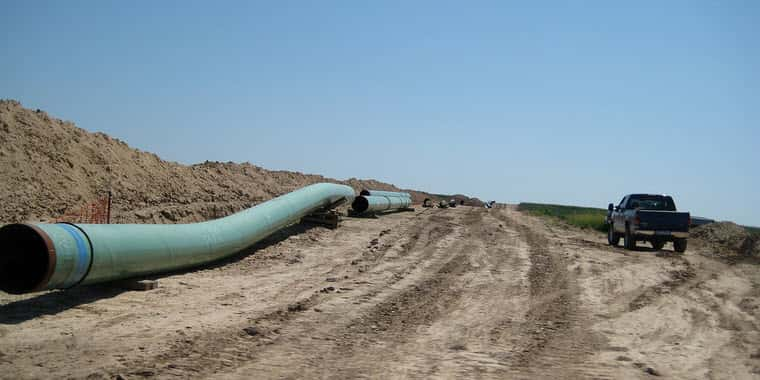Speaking at the New Trends in Agriculture Symposium in Glasgow, Montana this January, Dr. Barry Flinchbaugh told the audience that three issues were going to surface to the top in Washington, D.C. this year: trade, immigration, and the Keystone XL Pipeline. Working to help develop agricultural policy for years, the audience was all ears for the Professor Emeritus from Kansas State University.
With President Obama and the GOP at odds over several components of these very major issues, Flinchbaugh speculated at that time that a “grand compromise” was going to need to take place. If any progress was going to be made on any of the key three, it was going to come with a give and take.
Since that presentation, news came in the way of a presidential veto of the pipeline project. Expected, yes. Major? You bet.
With the veto behind him, Flinchbaugh says that he wouldn't be surprised if President Obama went ahead and approved the pipeline via executive order. “That was part of the argument,” said Flinchbaugh, “that he didn't think Congress ought to get involved with it like they did.”
Flinchbaugh says that the so-called grand compromise is still possible. For it to happen, Congress would have to meet President Obama somewhere in the middle on immigration. The lines are blurry and the details sparse on what that could look like. With much of Congress and President Obama agreeing on the basics of trade issues, Flinchbaugh agrees that an agreement could still come that leads to the President’s go-ahead on the pipeline.
Where will agriculture come out in such a scenario? According to Flinchbaugh, it’s hard to say. With different sectors of agriculture getting along about as well as members of Congress, he says agriculture itself is at odds.
“It’s far from over,” said Flinchbaugh as he wrapped up the discussion.
© Haylie Shipp 2015




